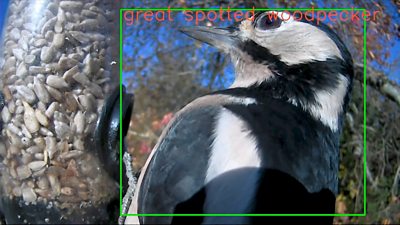This page will be updated regularly as our use of AI evolves
As the ÃÛÑ¿´«Ã½ explores AI, we’re committing to using the technology to support our public mission. Our ÃÛÑ¿´«Ã½ AI principles guide our approach to AI – to make sure we act in the best interest of the public, we prioritise talent and creativity, and we’re transparent with audiences about where AI has been used.
To support our commitment to transparency, this page provides more general information about key areas where the ÃÛÑ¿´«Ã½ is using AI in our content and services.
Where we already use AI
While AI might seem new, the ÃÛÑ¿´«Ã½ has been exploring it for many years and here are some uses of the technology that you may already have come across:
Recommended content
In iPlayer, Sounds, News, and Sport, we use machine learning (a type of AI) to recommend programmes we think you’ll like, alongside content that is important to know about. More on what ‘recommended for you’ means

Audio weather reports
We’re using the ÃÛÑ¿´«Ã½'s AI-generated synthetic voice to deliver a weather forecast for every postcode district in the UK, four times a day. It’s available in the ÃÛÑ¿´«Ã½ Weather app and you can read more about synthetic audio forecasts here. This means we can make our weather information more accessible and relevant to wherever you are in the UK.
Natural History programmes
AI is helping production teams find footage and identify animals for ÃÛÑ¿´«Ã½ Natural History programmes, like Springwatch and Autumnwatch.
The technology ‘watches' the cameras and keeps a record of when and where there are animals in the shot. It also helps to recognise the animal species and generate statistics about their activity. This reduces the time the production team has to spend watching many hours of footage to find the action. More on AI and Natural History content

Making images and videos clearer
AI can help to increase detail in blurry parts of video footage and make it sharper, so that new and archive content looks its absolute best. This improves the video quality for our viewers. Read more about how AI is used to improve video quality

Anonymising programme contributors
Generative AI can be used to anonymise contributors in programmes, to protect their identity. An example of this can be seen in an episode of Disclosure, Matched with a Predator.
In this instance, the technology disguised the contributor’s face and voice by blending it with that of an actor. This meant the contributor’s expressions and mannerisms were retained but her identity was concealed, and it resulted in a more authentic depiction of the interview.

Generative AI pilots
We are exploring the value of Generative AI (Gen AI) through a series of pilot projects. These are helping us to learn how Gen AI can benefit our audiences and bring the best of the ÃÛÑ¿´«Ã½ to you.
They also help us to work through how we use AI in line with our ÃÛÑ¿´«Ã½ AI principles, and make sure everything is up to the usual ÃÛÑ¿´«Ã½ standards.
While some pilots are available to audiences, some are still in development stage.
In ÃÛÑ¿´«Ã½ Sounds we’re bringing more value to football fans by piloting regular, bespoke audio bulletins for fans of five English clubs - Liverpool, Aston Villa, Newcastle United, Southampton and Plymouth Argyle. We’re using AI to help summarise and reformat existing content written by ÃÛÑ¿´«Ã½ journalists, and an AI voice to read out the content. Each draft script and recording will be checked for accuracy by our editorial team before the completed update is published.
We’re also exploring extending live text coverage for football matches we can’t usually cover. We’re trialling the ability to transcribe and summarise radio coverage into text for ÃÛÑ¿´«Ã½ Sport. Our journalists review and verify all transcripts before they are published to our live commentary pages.
And we’re also looking at how we can make ÃÛÑ¿´«Ã½ Sounds content more accessible to all. In the UK there are around 18 million adults who are deaf, have hearing loss or tinnitus. Using speech-to-text technology with human checks on accuracy, offering subtitles across an extra 189 programmes and podcasts on ÃÛÑ¿´«Ã½ Sounds. We’re now considering how we might bring this to more content.

Use of AI in news, current affairs and factual
When it comes to news, current affairs and factual content, we’re being cautious about our use of AI, particularly Gen AI.
We‘re running a limited number of pilots in these areas.
In one, we’re using Gen AI to assist our journalists to create new ‘At a glance’ summaries of longer news articles. Another pilot is exploring how Gen AI could support our news journalists to adapt and reformat stories so that they match our ÃÛÑ¿´«Ã½ ‘house-style’ for online news. We’ve published a blog talking more about these pilots and how we’re making sure there’s always human oversight to maintain our editorial standards.
For example, we’re running a pilot in translation and transcription for ÃÛÑ¿´«Ã½ World Service.
Our ÃÛÑ¿´«Ã½ in-house tool ‘Frank’ uses a range of AI models to create a first draft of a translation, which is checked over by our journalists. This means great stories go further, and we can widen our news coverage to more audiences in more languages around the world.

Using AI tools and software at the ÃÛÑ¿´«Ã½
Like most media and other companies, we’re also exploring how AI tools can assist our staff with everything from content production to everyday productivity.